- Home
- Jason Pinter
The Guilty Page 10
The Guilty Read online
Page 10
“You say you think this rifle bears a significance to the case?” she asked. All the playfulness had left Agnes Trimble’s voice. She was working now, the switch I assumed made her so good at her job was now turned on.
“I don’t know about the case, but it does to the man committing these crimes. I just need to prove it. I need to know why this gun is so special to him.”
She turned the book around so it faced me.
“Could this be the gun?”
On the page was a photograph of a rifle. It had a wooden stock, like Lourdes’s assistant said. Other than that, I didn’t know.
“Look here,” Agnes said. “Rather than a traditional trigger guard, it has a reloading mechanism with only one side attached to the frame. Makes for easy and fast reloading. These kind of rifles are as common as sequin jumpsuits. You asked about the gun that won the West? Well, here it is.”
The caption beneath the rifle read, Winchester 1873, First Model Rifle, S/N 27.
It was a beautiful piece of firepower. I examined it.
“At the time, this gun was given the highest production run of any rifle in history,” she said. “As much as the Winchester won the West, it nearly drowned it in blood as well.”
“Does the Winchester 1873 take .44-40 magnum rounds?”
Agnes nodded, her fingernail underlining a passage in the text.
The Winchester 1873 lever action rifle was originally chambered for the .44-40—a bottlenecked cartridge that has acquired legendary status and is often referred to as ‘The cartridge that won the West.’
I read the line, wondered if this was the gun the killer was using. The rifle obviously had history, a literal one at that. But why would somebody in the twenty-first century use a nearly hundred-and-forty-year-old gun?
“So the gun was accurate,” I said to Agnes. “And fast. But it surely can’t match some of the weapons around today. Hell…Uzis, semiautomatics, Saturday night specials.”
“Yeah, I’ve seen movies, too. And yes, there are many guns currently on the market that obliterate the necessity of the Winchester. But if this is the gun, and I’m assuming at this point that’s a big if, this man is not using it for efficiency or posterity.”
“So why use it?” Amanda said. She was into this, a little too much.
“The Winchester 1873,” Agnes said, her voice taking on a reverential tone, “until the Uzi 9 mm came along, was the most famous and most recognizable gun in the world. Over half a million were produced and in circulation before the turn of the century. Between lawmen, outlaws and other savory and unsavory types, just about anyone who needed to kill someone was doing it with a Winchester model 1873.”
“What made it so popular?”
Agnes breathed out, whistled. “Oh, well, take your pick. The construction was far more rugged than the previous models. That beast could take a pounding. It had a lever-action mechanism, and what that does is allow the shooter to fire several cartridges without having to reload. The 1873 model was lighter and faster than its grandfather, the 1866. The 1873 had a steel frame, which allowed Winchester to use a centerfire instead of a rimfire for the first time.”
Amanda said, “You know if I knew you knew all this, I might not have registered for your class.”
“If I didn’t know all this, I wouldn’t have a dozen unregistered students every semester taking my class for no credit.”
“So what’s the difference between centerfire and rimfire?” Agnes seemed to get that I knew a little less about weaponry than your average twenty-five-year-old. She spoke with no condescension, and I could tell her interest was more than academic.
“The centerfire was one of the most important technological advancements in the history of advanced weaponry. See, with a centerfire, a gunman could use more than one cartridge at a time.”
“Or gunwoman,” Amanda added. “Hey, I know about Annie Oakley.”
Agnes continued. “The older model Winchesters used a rimfire, which fired at a lower velocity and smaller caliber since the firing mechanism would often be damaged when using higher power ammunition. The steel frame made it the first rifle which could be used in just about any weather condition. It truly was an all-purpose killing machine.”
I said, “Athena Paradis and Joe Mauser were killed by .44-40 magnum rounds. I’m willing to bet Jeffrey Lourdes was the same. My friend on the force told me the .44-40 rounds are pretty uncommon calibers to be used in an urban setting.”
“They are, mainly because they’re impractical as hell,” Agnes said. “But in the 1880s, you didn’t have Uzis. A good rifle, accurate, powerful and easily reloaded, could win a war, wreak havoc everywhere, or keep the law.”
“So basically this was a bad-ass rifle of the first degree.”
“I believe that’s how pretty much any historian would put it.”
I sat back and tried to digest all of this. According to all the facts we had so far, a young man could be running around New York with a rifle made famous in the nineteenth century. A rifle that would be described as a “killing machine.” So far he had targeted three people who had seemingly no connection to each other aside from their propensity for front-page coverage. Popular gun, popular targets. I knew there was more to this story. That there was a very specific reason, if this was the right gun, that this monster was using it.
Agnes continued, confirming my thoughts. “Nobody would be using this weapon today without a purpose.”
“I know that,” I said. “But we don’t know what that purpose is. Where could someone find this gun?” I asked.
“Oh, hell, I don’t know. Someone who wants it bad, that’s for sure.”
“Look, Agnes,” I said. “Three people are dead. Who knows how many more are targeted, or if the cops can catch this guy before he crosses anyone else off his list? Right now all I want to do is find out if this is the gun being used, and if so, why. I know in my heart if I can answer that question, we’ll find out who this man is.”
Agnes looked at me, looked at Amanda.
“You love her?” she asked.
Amanda’s mouth opened. The question knocked me a bit, but I looked her in the eye and said, “Yes I do.” I felt Amanda’s hand on mine.
“Then promise this girl right here that if you feel yourself getting too close, you’ll back off. The kind of man who would go out of his way to use a weapon with such a bloody history won’t think twice about collateral damage. Reporters are no good dead.”
“I know that,” I said.
“Museums,” she said. “Museums with Old West exhibitions. Collectors, but antique and current. Start your search with everything below the Mason-Dixon line. Anyone who goes out of their way to possess a working Winchester 1873 knows its history well. And appreciates it.”
“This killer surely does both,” I said. “Hey, would you mind if I make a copy of this?”
“Not at all, Xerox machine is down the hall, second left, next to the Wet Paint sign.”
I gently took the book, brought it to the machine, laid it flat and made three copies of the page featuring the Winchester. I put the copies in my backpack, then brought the book back to Agnes.
“Thanks,” I said.
“Don’t mention it. Now, what you do know,” she said, “is that someone is looking to make a statement. The Winchester 1873 wasn’t just any gun. This was the gun that won the West, back when our country was going through its bloodiest and most dangerous time.”
“And now somebody’s brought that gun back east,” Agnes continued. “And you better pray to God they’re not looking for this gun to do what it does best, and pick up where it left off. Because these dead people? They’ll just be the beginning.”
CHAPTER 19
She shivered in the morning air. She wore a tan polo shirt and skirt, the wind whipping through her uncombed hair. The weather report said today would be chilly and she could have easily worn a coat, but found herself caring less whether she was comfortable and more about getting out of t
he house.
Last night had been a disaster. She remembered dancing on tables. She remembered pouring alcohol down her throat seemingly by the gallon. She remembered going home alone, and her bloodshot eyes reminded her that she’d cried herself to sleep. She remembered making a phone call around three in the morning, but it went right to his voice mail. She woke up with mascara stains on her pillow, throwing it into the laundry in a fit of rage. It was then that she remembered her meeting this morning.
There were three messages on her cell phone. She didn’t even remember it ringing. One was from her friend Shayla calling to make sure she got home all right. The second was from her friend Bobby, one of the bazillion gorgeous gay men of New York City who spent more money on clothing than the U.N. spent on military aid and seemed to have swept all the decent straight guys under some giant heterosexual carpet. Bobby had been positively shattered by Athena Paradis’s murder. He owned an autographed copy of her book, had preordered her CD, and her image wallpapered his Mac. Bobby was also checking up on her. She’d gone to the bar with Bobby and her “friend” Victoria, though neither he nor Victoria seemed concerned enough to actually leave the bar to check on her. At least that’s the sense she got, considering there was house music blaring in the background on their message.
The third was from her mother asking to meet up for dinner. Her mother sounded sad, even a little scared. She deleted the message and erased the call from her memory.
She wore dark sunglasses. Not that anybody would recognize her. Recently her jaw had been hurting. She’d seen a doctor a few weeks ago who said she might need another operation, that the first one might have damaged a nerve. She drank so much vodka to numb the pain that more than once she feared having to get her stomach pumped.
She was in no shape for this meeting, but when she remembered the woman’s voice, the urgency, the it’s about your father, I just want your side of the story, she knew she had to keep it.
The diner was just a few blocks from her apartment. She went there almost every morning, and it had been her suggestion to meet there. On weekdays she ordered a cappuccino to go, and the owner was always kind. On weekends she would treat herself to chocolate chip pancakes, then go straight to the gym to work off the calories.
They wouldn’t miss her at the office today. She’d called in sick. They didn’t much care whether she came in or not, as long as her last name was still Loverne.
Mya walked up to the diner and opened the door. She welcomed the smell of frying bacon, sugary syrup and fresh eggs, felt like ordering all of them to get rid of the awful taste in her mouth. A bottomless cup of coffee would go a long way. She had a vague idea of who she was looking for. Then she saw a woman in the corner waving her hand. The woman mouthed Mya?
Mya nodded, walked over and slid into the booth. The woman extended a hand with perfectly manicured nails, and said, “Mya Loverne?”
Mya nodded.
“Paulina Cole. It’s such a pleasure to meet you. Henry used to talk about you all the time back at the Gazette.” Paulina looked her over. It made Mya uncomfortable.
Paulina Cole wore a tailored pantsuit. Her jewelry was fine but not ostentatious. She wore her hair tied back in a ponytail, a thin string of pearls around her neck. A tape recorder sat on the table next to two steaming cups of coffee. There was a smile on Paulina’s face, like a friendly aunt pleased to see how well her niece is doing.
“You’re much more elegant in person. I’ve only seen your picture in the society pages.”
“The lighting always sucks,” Mya said. “And the dresses make me feel like I can’t breathe.”
“Coming from a well-known family is as much a curse as it is a gift,” Paulina said. “You know, it’s a real shame that Henry is too stubborn to see what he’s lost.”
Mya didn’t know whether to smile or throw a cup of coffee in Paulina’s face.
“Please don’t patronize me.”
Paulina sat back, held up her hands. “I understand. But I can’t apologize for saying it. Listen,” she said, leaning forward again. “I’m embarrassed to say that we both know how stories in the news take on a life of their own. From what I gather, the last year has been hard for you.”
“What do you know about it?”
“Well, after you were involved in Henry’s altercation,” Paulina said, as though they’d been in a fender-bender, “your career doesn’t seem to have taken off the way you expected.”
“What do you care about my career?”
“I shouldn’t,” Paulina said. “But the truth is we both know how hard it is for strong women to make it in corporate America. Add to that the pressure of being a Loverne. Whether it’s law or journalism, it’s still about who can claw the hardest and deepest. Cornell, then law school at Columbia, you have a pretty terrific pedigree. I imagine neither were easy to achieve.”
“Easy is what you make of it. Some kids can study eight hours a night and still blow the bar. Some can soak it up while spending three years sucking down beers five nights a week.”
“And which were you?” Paulina asked.
Mya shifted in her seat. “I don’t really know. I think I used to be the former. Now…I don’t know.”
“Mya,” Paulina said, her voice growing soft. “You know why I asked you here, right?”
“Not exactly,” she said. “You said something about my father. What does he have to do with anything?”
Paulina sighed. “I’m going to be straight with you. I’m writing an article on your father’s campaign. Well, more specifically…his life. I think you can get where I’m going with this.”
“No. Enlighten me.”
“You’re not blind,” Paulina said, “and clearly not stupid. You must have heard the rumors. Or seen it with your own eyes.”
“Seen what?” Mya said.
“The other women.”
Mya nearly choked.
“You’re writing an article about my father seeing other women? Are you fucking kidding me?”
Paulina offered her hands. “It’s more than that,” she said. “Your father is an important man. Important people need to gain the trust of their constituents. It’s my job, it’s what I’m paid for, to make sure people know the full story.”
“Jesus,” Mya whispered.
“It’s going to be in the newspapers,” Paulina said. “I have nothing against you or your father. I just want to know the truth. It doesn’t need to be painful. If you just tell me what you know, the innuendos are kept out of it. The truth is all I want.”
“I can’t believe he’s so stupid,” Mya said, feeling her cheeks grow warm.
“Your father?” Mya nodded. “So you knew.”
“Yes,” Mya said, her voice barely a sound.
“Do you know who?” Mya shook her head. “Or how many?” Again.
“I don’t know anything else, please, just leave it alone.”
“Mya,” Paulina said, “I honestly can’t imagine how hard this is for you. Have you been able to talk to anyone else about it?” Mya stared into her coffee. “What about Henry?”
Mya looked at her, stared into Paulina’s eyes. Then shook her head.
“We don’t talk anymore. At least he doesn’t talk to me.” Mya took a sip of her coffee, holding the mug in both hands. She let the warmth travel down her hands. She put it down, added some more sugar. “I’m not sure what else you want to know.”
“Why doesn’t Henry want to talk to you? Weren’t you two close?”
“Were,” Mya said.
“What happened?”
“It ended. Relationships do.”
“You didn’t want to stay friends?”
“I did,” Mya said. Paulina leaned closer. Mya could smell her perfume. It smelled good, not too strong.
“The truth is, Mya, Henry is in an incredibly important position right now. I fear that the brain trust at the Gazette, that would be Harvey Hillerman and Wallace Langston, have placed too much pressure on Henry. Since the scandals
last year, there haven’t been many young reporters given access to the kind of stories he’s had. Did you know he’s covering Athena Paradis’s murder?”
“I read his stories,” Mya said.
“So much pressure though,” Paulina said, as though the weight of the world was pressing on her shoulders. “If you’re not up to the job, in our profession there are catastrophic consequences.”
Mya sipped her coffee, said nothing. Paulina offered a warm smile.
“My ex was addicted to coffee,” she said. “If he didn’t drink a minimum of six cups a day, he’d throw furniture around our apartment like he was shooting rubber bands. I think I spent as much money staying in hotels to get away from him as I did paying our mortgage.”
“Really?”
“God, yes. If you’re ever in an abusive relationship, please take it from someone who’s made too many mistakes in the love department, get your ass out of that place quick and don’t ever look back.”
They both laughed. Mya looked at Paulina. Her smile seemed so genuine, like she wasn’t simply a reporter, but someone who truly cared. Mya thought about her friends, the ones who said they’d always be there for her. The ones who never called, never checked up, always assumed her tears came from happiness. Never stopping to think that she had nothing to be happy about. And hadn’t for a long time.
“We were together almost three years,” Mya said, sighing. “Then it ended.”
“Just like that.” Paulina spread some raspberry jam over a slice of toast. She bit into it, brushed some crumbs off her lip. “Was it one thing, or just a lot of one things?”
“Kind of both. You know how college relationships are. Eventually you either move in or get lost. I was a year older than Henry, and when I moved back to the city we just grew apart.” Paulina kept chewing. “And then…”
Paulina stopped chewing. Waited. Mya stayed quiet.
“And then what?”
“You know, shit happens. Life. He was up there, I was down here. Shit.”

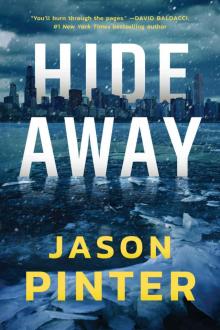 Hide Away (A Rachel Marin Thriller)
Hide Away (A Rachel Marin Thriller)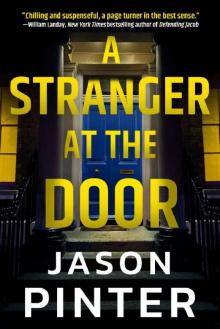 A Stranger at the Door (A Rachel Marin Thriller)
A Stranger at the Door (A Rachel Marin Thriller)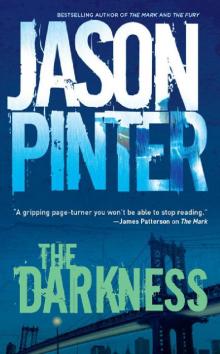 The Darkness hp-5
The Darkness hp-5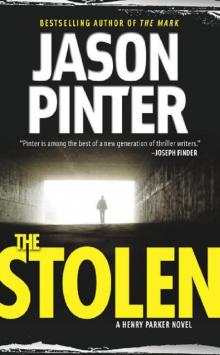 The Stolen hp-3
The Stolen hp-3 The Guilty hp-2
The Guilty hp-2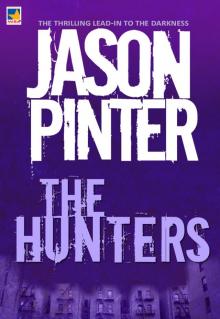 The Hunters
The Hunters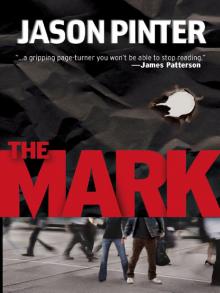 The Mark hp-1
The Mark hp-1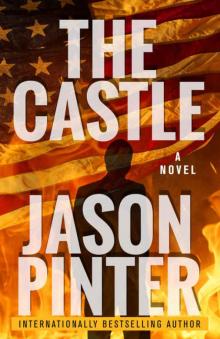 The Castle: A Ripped-From-The-Headlines Thriller
The Castle: A Ripped-From-The-Headlines Thriller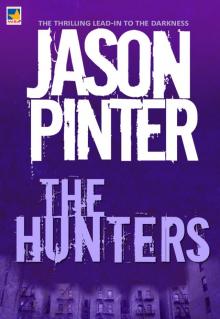 The Hunters (henry parker)
The Hunters (henry parker)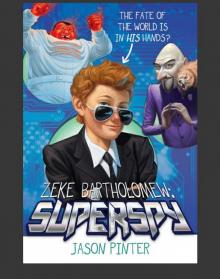 Zeke Bartholomew
Zeke Bartholomew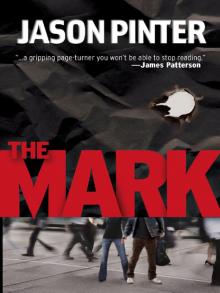 The Mark
The Mark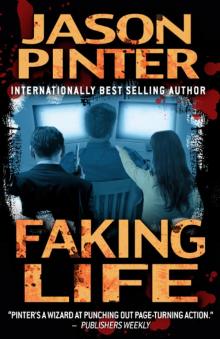 Faking Life
Faking Life![[Henry Parker 01.0] The Mark Read online](http://i1.bookreadfree.com/i2/04/08/henry_parker_01_0_the_mark_preview.jpg) [Henry Parker 01.0] The Mark
[Henry Parker 01.0] The Mark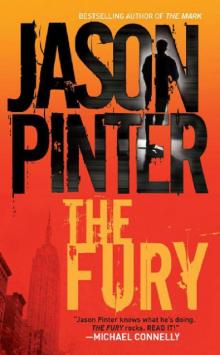 The Fury hp-4
The Fury hp-4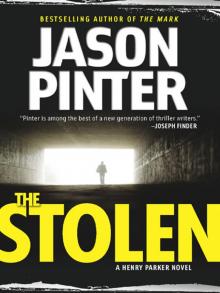 The Stolen
The Stolen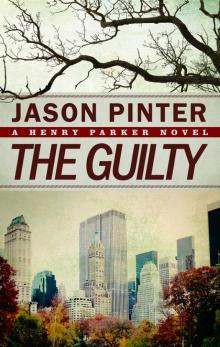 The Guilty
The Guilty